For the fourth instalment of our Saturday column, In This Together, we present three diary entries from renowned Portuguese writer Gonçalo M. Tavares, translated by Daniel Hahn. Below, Hahn introduces us to Tavares’ work and the background behind his stream-of-consciousness diary that, written like a prose poem, records the daily changes of the pandemic experience:
The novelist Gonçalo M. Tavares is, like most of us, stuck at home. He is in Portugal, from where since March 23 he’s been writing a daily “Plague Diary.” As each piece is finished, it gets translated—sometimes overnight—into several languages for publication around the world. I have the good fortune of being one of the translators. To date he has written (and I’ve translated) thirty-two pieces, including the three that you can read below.
Gonçalo is one of the Portuguese world’s most critically acclaimed writers. José Saramago tipped him as the next Lusophone winner of the Nobel, saying, “Tavares burst onto the Portuguese literary scene armed with an utterly original imagination that broke through all the traditional imaginative boundaries. This, combined with a language entirely his own, mingling bold invention and a mastery of the colloquial, means that it would be no exaggeration to say . . . that there is very much a before Gonçalo M. Tavares and an after.” But while he has a stellar reputation in many languages, he is as yet frustratingly underappreciated in English. So if he’s new to you, I should say, perhaps, that this writing project is not typical of Gonçalo’s work—but then, I don’t know whether any one piece of his work is typical of his work, come to that. All are extraordinary, as I think this one is.
Each entry seems to take you through a single day’s experience—stepping-stone by stepping-stone—an observation, a piece of news, a thought that gets followed down a rabbit-hole, a bit of culture consumed, a recurring, niggling worry—in a way that partly recreates the peculiarly time-adrift days so many of us are experiencing; unstructured days filled with tiny moments (another news alert, an e-mail from a friend, stop to pat the dog, time perhaps for another coffee), but threaded together with some really subtle, almost invisible artfulness. Each day reads alone, but the best effect is cumulative, each piece slightly developing and illuminating what’s gone before. The writer is looking far outward as much as inward, so the diary ends up being global as well as intimate; its ingredients include utter banality, yet even that banality is woven into something weirdly engrossing, sometimes distressing, sometimes strangely comforting.
One day we will be living in a place where this whole project can be published all together as a book, to be read for its artistry and its thoughtfulness and as a reminder of who we were in the spring of 2020; but in the meantime, while we are still living in the present that it describes, I have felt its entries gradually becoming one of the richest ways I daily connect with the rest of the world (absent any of the old possibilities). I hope readers can find those connections for themselves here, too.
Extracts from “Plague Diary”
by Gonçalo M. Tavares
6 April
Human number 486 died in a Madrid hospital.
Lists of the dead.
Lists of chosen books.
A list of places to visit after the plague, when it is the anxiety that is driven away and not the bodies.
Ten pages in the newspaper with pictures of people with two dates.
Jacob Steinberg, Israeli poet: “we look tonight like a city in flames.”
I need gauze for the wounds of humans and animals and I consult a link.
“https://www.mifarma.pt/gasas-suaves-hansaplast-10-uds-85m-x-5cm.”
In the details, the link says the following:
“For looking, mole suggestion to clean and collect wounds.”
Later: “Individuals sterile wrapping.”
Then, the clincher. How to use it:
“Clean the area surrounding carefully before applying the look.”
“Use or cure the Hansaplast look to fix a look on nowhere.”
“Apply a new one, I think that less hair daily.”
All instructions should be like this.
Instructions from a lunatic for other lunatics.
I like automatic translators that move into high aesthetics without knowing it.
“Clean the area surrounding carefully before applying the look.”
Clean the surface of an animal’s leg or a human arm well.
Carefully clean and then apply the look.
With a certain strength.
I try this on Roma’s leg.
Medicine that carefully cleans the surrounding area and then applies the look.
The ancients were men who applied the look.
It didn’t work.
My Greek friend tells me that a few days ago, at the refugee camp in Ritsona, a woman tested positive for coronavirus when she went to give birth in a public hospital.
Only then did they realise that many in the camp were infected.
Quarantine. The baby reveals things.
The good soldier Svejk and the description of the lunatic asylum:
“one very educated inventor . . . who spent his life picking his nose and only said once a day: I’ve just invented electricity.”
The raving and badly translated ad for the gauze reminded me of that madman who invented electricity once a day.
When this is over, the outside world is going to be full of crazy people, daily inventors of electricity.
In Italy the government has given approval for all students to pass their year.
In Sweden there are fears of thousands of deaths from Covid-19.
Somebody asks: If you lose your desire, would you go looking for it?
Where?
Alexander Kluge talks about a doll “where the eyes” tell you the time.
Seeing the right time in the eyes of the doll.
Seeing the right time in the eyes of some old men on television.
At certain moments, clocks seem to stop working.
All that work are human eyes.
In Italy, everybody who goes out onto the street has the right time in their eyes.
In Spain too.
And in other places. In the United States.
I receive a link: click on a year and the most listened-to songs of that time will come up.
It’s called “nostalgia machine.”
A collective nostalgia machine.
Jung, explicit in do re mi.
I click on 1986.
The choices are terrible.
From Phil Collins to Samantha Fox.
Sometimes it’s better to lose our memory: memory 0.0
Two days ago in India: “Thousands of people flee to escape hunger.”
The factories are closed, almost everything quarantined.
Thousands quit the capital and return to their village.
There aren’t enough buses.
Reports in the Guardian. Many had to return on foot.
200 kilometres from New Delhi.
“The road seemed endless . . . and my children just took short breaks sleeping on the ground,” Mamta explained.
The only thing that kept us moving was that we had nowhere else to go, said Mamta.
The only thing.
“Each day a deeper rebirth,” the painter used to say, quoting a master.
The following day, in the same place, but sunk deeper.
With just your head out.
That’s how you learn: with just your head out.
Boris Johnson has been put into intensive care.
The Foreign Secretary Dominic Raab will take his place.
They’re talking about 15 million new unemployed people in the United States.
I return to my book.
“Take five steps forward and five steps back,” says a doctor at the asylum of the good soldier Svejk.
It is a test to see whether the man is crazy or not.
I try to do this.
We should all do this.
Five steps forward and five steps back to see if we stay in the same place.
We don’t stay in the same place.
It’s no longer possible to stay in the same place.
*
8 April
All Mexican women are in love with the undersecretary of health, Hugo López-Gatell.
From a friend of mine in Mexico City, she was the one who verified this.
He speaks every evening at 7:00 p.m.
All the women, of all ages, are in love.
Married, single, widows.
He’s charming and intelligent, they say.
He’s a combo, they add. He has everything all in one.
There are photos of him all over Mexico and circulating on the internet, in different poses and suits.
And with the caption:
“I’ll protect you”
“I’m telling you to stay home”
“I’d be happy to explain it to you”
And another one, with a mean (“but very lovely”) expression, with the caption: “I saw you went out!”, as if Hugo López-Gatell were reproaching a citizen for not staying home.
Many men are also in love with him, says my friend from Mexico.
“He’s so supergorgeous our doctor.”
“I fell in love with him from the start of Covid-19 and since then I’ve done what Hugo López-Gatell says.”
Meanwhile, the Chinese city of Wuhan reopened this Wednesday. READ MORE…


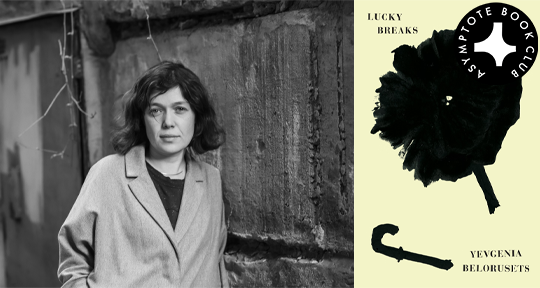
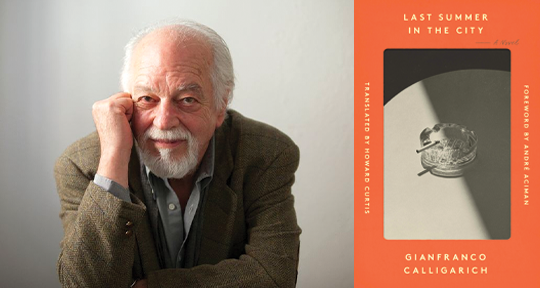
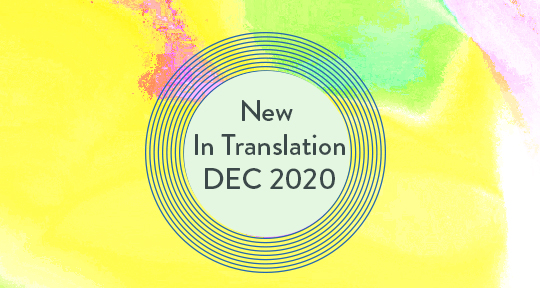
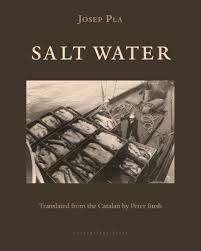
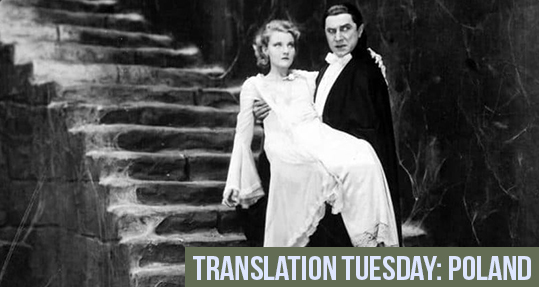



What’s New in Translation: August 2021
New work this month from Lebanon and India!
The speed by which text travels is both a great fortune and a conundrum of our present days. As information and knowledge are transmitted in unthinkable immediacy, our capacity for receiving and comprehending worldly events is continuously challenged and reconstituted. It is, then, a great privilege to be able to sit down with a book that coherently and absorbingly sorts through the things that have happened. This month, we bring you two works that deal with the events of history with both clarity and intimacy. One a compelling, diaristic account of the devastating Beirut explosion of last year, and one a sensitive, sensual novel that delves into a woman’s life as she carries the trauma of Indian Partition. Read on to find out more.
Beirut 2020: Diary of the Collapse by Charif Majdalani, translated from French by Ruth Diver, Other Press, 2021
Review by Alex Tan, Assistant Editor
There’s a peculiar whiplash that comes from seeing the words “social distancing” in a newly published book, even if—as in the case of Charif Majdalani’s Beirut 2020: Diary of the Collapse—the reader is primed from the outset to anticipate an account of the pandemic’s devastations. For anyone to claim the discernment of hindsight feels all too premature—wrong, even, when there isn’t yet an aftermath to speak from.
But Majdalani’s testimony of disintegration, a compelling mélange of memoir and historical reckoning in Ruth Diver’s clear-eyed English translation, contains no such pretension. In the collective memory of 2020 as experienced by those in Beirut, Lebanon, the COVID-19 pandemic serves merely as stage lighting. It casts its eerie glow on the far deeper fractures within a country riven by “untrammelled liberalism” and “the endemic corruption of the ruling classes.”
Majdalani is great at conjuring an atmosphere of unease, the sense that something is about to give. And something, indeed, does; on August 4, 2020, a massive explosion of ammonium nitrate at the Port of Beirut shattered the lives of hundreds of thousands of people. A whole city collapsed, Majdalani repeatedly emphasises, in all of five seconds.
That cataclysmic event structures the diary’s chronology. Regardless of how much one knows of Lebanon’s troubled past, the succession of dates gathers an ominous velocity, hurtling toward its doomed end. Yet the text’s desultory form, delivering in poignant fragments day by elastic day, hour by ordinary hour, preserves an essential uncertainty—perhaps even a hope that the future might yet be otherwise.
Like the diary-writer, we intimate that the centre cannot hold, but cannot pinpoint exactly where or how. It is customary, in Lebanon, for things to be falling apart. Majdalani directs paranoia at opaque machinations first designated as mechanisms of “chance,” and later diagnosed as the “excessive factionalism” of a “caste of oligarchs in power.” Elsewhere, he christens them “warlords.” The two are practically synonymous in the book’s moral universe. Indeed, Beirut 2020’s lexicon frequently relies, for figures of powerlessness and governmental conspiracy, on a pantheon of supernatural beings. Soothsayers, Homeric gods, djinn, and ghosts make cameos in its metaphorical phantasmagoria. In the face of the indifferent quasi-divine, Lebanon’s lesser inhabitants can only speculate endlessly about the “shameless lies and pantomimes” produced with impunity. READ MORE…
Contributors:- Alex Tan
, - Fairuza Hanun
; Languages: - French
, - Hindi
; Places: - India
, - Lebanon
; Writers: - Charif Majdalani
, - Geetanjali Shree
; Tags: - Beirut 2020 explosion
, - diary
, - disaster
, - Indian Partition
, - motherhood
, - recovery
, - social commentary
, - trauma
, - womanhood